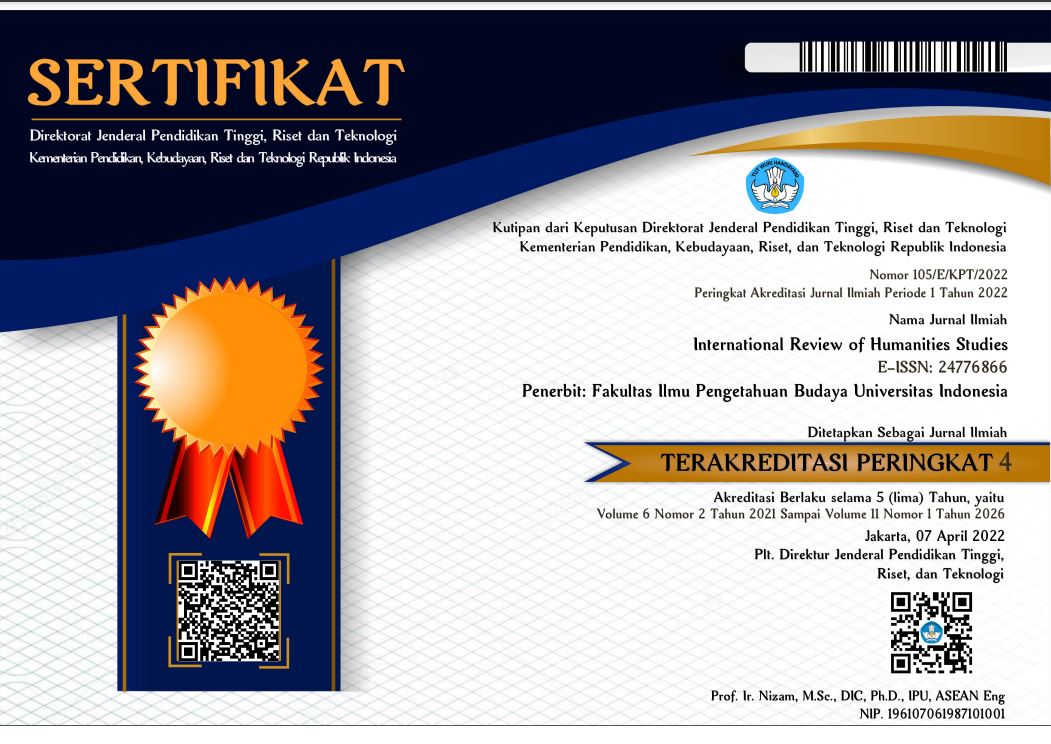International Review of Humanities Studies

Abstract
Alternative assessments are said to be suitable for young language learners, but are rarely used by language teachers from all educational levels. One of the causes is teachers’ lack of knowledge regarding the best ways to utilize alternative assessments. This research explores how an English teacher for young learners can use portfolio, an alternative assessment, as a source of information about learning process. Data from journal entries and stimulated recall sessions that focus on the participant’s lesson plans were collected every week to reveal how portfolio was used, while initial and final interviews were done to reveal the participant’s perception about portfolio. The results indicate that portfolio could help the participant identify learners’ weaknesses, strengths and needs as she started exploring a topic; determine the teaching focus, suitable teaching materials and appropriate teaching strategies; monitor learners’ development; and decide whether the topic needs to be explored further. The participant also has a positive perception about using portfolio. Some issues about portfolio, such as its use alongside other forms of assessment, are also revealed. The results provide new, more specific information about how teachers can use portfolio.
References
Butler, Y. G. (2009). Issues in the assessment and evaluation of English language education at the elementary school level: Implications for policies in South Korea, Taiwan, and Japan. The Journal of Asia TEFL, 6(2), 1-31. http://journal.asiatefl.org/main/main.php?inx_journals=20&inx_contents=225&main=1&sub=2&submode=3&PageMode=JournalView&s_title=Issues_in_the_Assessment_and_Evaluation_of_English_Language_Education_at_the_Elementary_School_Level_Implications_for_Policies_in_South_Korea__Taiwan__and_Japan
Butler, Y. G., & Lee, J. (2010). The effects of self-assessment among young learners of English. Language Testing, 27(1), 5-31. https://doi.org/10.1177/0265532209346370
Brown, H. D. (2004). Language assessment. Longman.
Brown, J. D., & Hudson, T. (1998). The alternatives in language assessment. TESOL Quarterly, 32(4), 653-675.
https://links.jstor.org/sici?sici=0039-8322%28199824%2932%3A4%3C653%3ATAILA%3E2.0.CO%3B2-3
Cameron, L. (2001). Teaching languages to young learners. Cambridge University Press.
Clarke, J. L., & Boud, D. (2018). Refocusing portfolio assessment: Curating for feedback and portrayal. Innovations in Education and Teaching International, 55(4), 479-486. https://doi.org/10.1080/14703297.2016.1250664
Coombe, C., Purmensky, K., & Davidson, P. (2012). Alternative assessment in language education. In C. Coombe, P. Davidson, B. O’Sullivan, & S. Stoynoff (Eds.), The Cambridge guide to second language assessment (pp. 147-155). Cambridge University Press.
Creswell, J. W. (2012). Educational research: Planning, conducting, and evaluating quantitative and qualitative Research. Pearson.
Desyatova, Y. (2020). When inquiry is seen as resistance to change: Expert teachers’ experiences with the implementation of portfolio-based language assessment (PBLA). Critical Inquiry in Language Studies, 17(1), 42-63. https://doi.org/10.1080/15427587.2020.1713788
Efendi, Z., Usman, B., & Muslem, A. (2017). Implementation of portfolio assessments in teaching English writing. English Education Journal, 8(2), 187-198. http://jurnal.unsyiah.ac.id/EEJ/article/view/7227/5939
Gaytan, J. (2006). Effective assessment techniques for online instruction. Information Technology, Learning, and Performance Journal, 23(1), 25-33. http://citeseerx.ist.psu.edu/viewdoc/summary?doi=10.1.1.577.4155
Gomez, E. L. (1999). Assessment portfolios and English language learners: Frequently asked questions and a case study of the Brooklyn International High School. Brown University.
Hung, S. A. (2012). A washback study on e-portfolio assessment in an English as a Foreign Language teacher preparation program. Computer Assisted Language Learning, 25(1), 21-36. https://doi.org/10.1080/09588221.2010.551756
Kaur, C., & Samad, A. A. (2013). The use of portfolio as an assessment tool in the Malaysian L2 classroom. International Journal of English Language Education, 1(1), 94-108. https://doi.org/10.5296/ijele.v1i1.2851
Kim, Y., & Yazdian, L. S. (2014). Portfolio assessment and quality teaching. Theory into Practice, 53(3), 220-227. https://doi.org/10.1080/00405841.2014.916965
Maki, P. (2002). Using multiple assessment methods to explore student learning and development inside and outside of the classroom. NASPA’s NetResults. https://www.apu.edu/live_data/files/333/multiple_assessment_methods_to_explore_student_learning_and_deve.pdf
Monika, Y. (2013). Promoting self-assessment for learning and fair scoring [Unpublished thesis]. Universitas Indonesia.
Natalia, E. (2010). The implementation of portfolio in a primary classroom: Monitoring students’ writing improvement [Unpublished thesis]. Universitas Katolik Indonesia Atma Jaya.
Nikolov, M. (2016). Trends, issues, and challenges in assessing young language learners. In M.
Nikolov. (Ed.), Assessing young learners of English: Global and local perspectives (pp. 1-18). Springer. https://doi.org/10.1007/978-3-319-22422-0
Nunan, D., & Bailey, K. M. (2009). Exploring Second Language Classroom Research: A Comprehensive Guide. Heinle, Cengage Learning.
Philp, J., Mackey, A., & Oliver, R. (2008). Child's play? Second language acquisition and the younger learner in context. In J. Philp, R. Oliver, & A. Mackey (Eds.), Language learning & language teaching: Vol. 23. Second language acquisition and the younger learner: Child's play? (pp. 3-23). John Benjamins Publishing Company.
Pinter, A. (2012). Teaching young learners. In A. Burns & J. C. Richards (Eds.). The Cambridge guide to pedagogy and practice in second language teaching (pp. 103-111). Cambridge University Press.
Rukmini, D., & Saputri, L. A. D. E. (2017). The authentic assessment to measure students’ English productive skills based on 2013 curriculum. Indonesian Journal of Applied Linguistics, 7(2), 263-273. https://doi.org/dx.doi.org/10.17509/ijal.v7i2.8128
Yang, T. (2007). Factors affecting EFL teachers' classroom assessment practices of young language learners (Publication No. 3281422) [Doctoral dissertation, University of Iowa]. ProQuest Dissertations Publishing.
Recommended Citation
Andhini, Rifa and Halimi, Sisilia Setiawati Dr.
(2021)
"USING PORTFOLIO AS A SOURCE OF INFORMATION ABOUT LEARNING PROCESS,"
International Review of Humanities Studies: Vol. 6:
No.
3, Article 13.
DOI: 10.7454/irhs.v6i3.1340
Available at:
https://scholarhub.ui.ac.id/irhs/vol6/iss3/13
Included in
Anthropology Commons, Art and Design Commons, Creative Writing Commons, Cultural Heritage Law Commons, Education Law Commons, Film and Media Studies Commons, History Commons, Intellectual Property Law Commons, International and Area Studies Commons, Legal Writing and Research Commons, Linguistics Commons, Museum Studies Commons, Philosophy Commons, Urban Studies and Planning Commons



